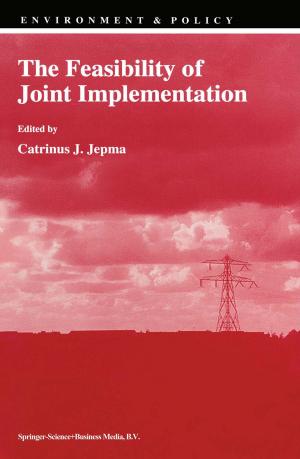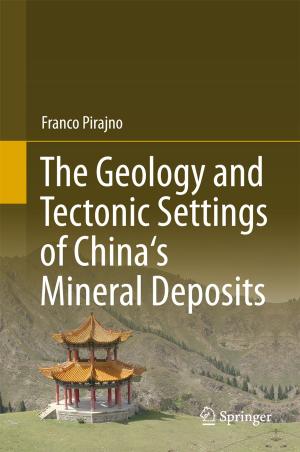Geospatial Technologies in Environmental Management
Nonfiction, Science & Nature, Science, Earth Sciences, Geophysics, Technology, Environmental, Nature| Author: | ISBN: | 9789048195251 | |
| Publisher: | Springer Netherlands | Publication: | September 27, 2010 |
| Imprint: | Springer | Language: | English |
| Author: | |
| ISBN: | 9789048195251 |
| Publisher: | Springer Netherlands |
| Publication: | September 27, 2010 |
| Imprint: | Springer |
| Language: | English |
Geotechnologies and the Environment: Environmental Applications and Mana- ment presents an engaging and diverse array of physically-oriented GIScience applications that have been organized using four broad themes. While the book’s themes are by no means mutually exclusive, Hoalst-Pullen and Patterson provide an elegant overview of the eld that frames the collection’s subsequent thematic str- ture – Wilderness and Wildlife Response; Glaciers; Wetlands and Watersheds; and Human Health and the Environment. Over the course of the volume, the contrib- ing authors move beyond basic (and in some respects clichéd) landscape ecology of land use change to explore human-environment dynamics heretofore not emp- sized in the applied literature. In doing so, the collection presents a compelling case for the importance of developing new physically-oriented GIScience applications that reside at the nexus of social and natural systems with the explicit intent of informing public policy and/or the decision making practices of resource managers. Individually, the chapters themselves are intentionally diverse. The diversity of the approaches, their spatial context, and emphases on management applications demonstrate the many ways in which geotechnologies can be used to address small and big problems in both developed and developing regions. The collection’s int- nal coherence is derived – like the book series – from its explicit appeal to a wide variety of human-environment interactions with potential policy linkages.
Geotechnologies and the Environment: Environmental Applications and Mana- ment presents an engaging and diverse array of physically-oriented GIScience applications that have been organized using four broad themes. While the book’s themes are by no means mutually exclusive, Hoalst-Pullen and Patterson provide an elegant overview of the eld that frames the collection’s subsequent thematic str- ture – Wilderness and Wildlife Response; Glaciers; Wetlands and Watersheds; and Human Health and the Environment. Over the course of the volume, the contrib- ing authors move beyond basic (and in some respects clichéd) landscape ecology of land use change to explore human-environment dynamics heretofore not emp- sized in the applied literature. In doing so, the collection presents a compelling case for the importance of developing new physically-oriented GIScience applications that reside at the nexus of social and natural systems with the explicit intent of informing public policy and/or the decision making practices of resource managers. Individually, the chapters themselves are intentionally diverse. The diversity of the approaches, their spatial context, and emphases on management applications demonstrate the many ways in which geotechnologies can be used to address small and big problems in both developed and developing regions. The collection’s int- nal coherence is derived – like the book series – from its explicit appeal to a wide variety of human-environment interactions with potential policy linkages.















